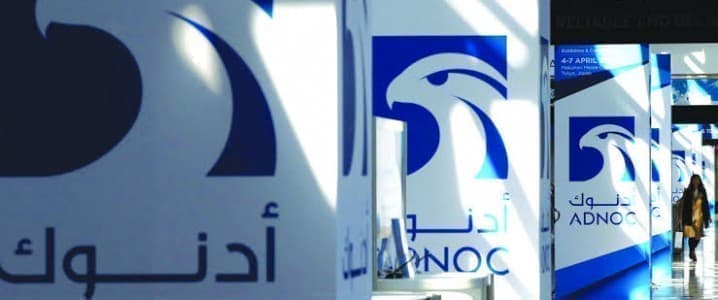The United Arab Emirates (UAE) is the key Arab state at the centre of the U.S.’s Middle East pushback against increasing Chinese and Russian influence across the region via the recent ‘normalisation deals’ between Israel and the UAE and Bahrain. The UAE’s Abu Dhabi National Oil Co (ADNOC) is the key corporate proxy in this effort. For the strategy to function effectively it is necessary not only that the UAE increases its crude oil volumes via ADNOC - and plans are proceeding to push this up by around 1 million barrels per day (bpd) to at least 5 million bpd by 2030 at the latest – but also to ensure that the UAE is self-sufficient in gas. This latter consideration is vital as it will safeguard the UAE from any external pressure that might be brought upon it by the big gas powers in the region, notably Iran, were it to lack this self-sufficiency. Last week’s announcement of a US$510 million deal with Italy’s Saipem to expand the capacity of the UAE’s flagship Shah Sour Gas Plant is vital in this strategy.
The deal itself is an engineering, procurement and construction (EPC) contract to expand the capacity of its Shah Sour Gas Plant aimed at increasing its processing capacity from 1.28 billion standard cubic feet per day (scf/d) to 1.45 billion scf/d by the end of 2023. This latest initiative is all part of the decision made back in 2014/2015 to eventually make the UAE self-sufficient in gas in order to bolster the country’s energy and power security and to use in its burgeoning and value-added petrochemicals sector. At that point, the Shah Sour Gas Plant, located around 200 kilometres southwest of Abu Dhabi city, had just come on stream and the Related: China's Private Oil Refiners Are Too Powerful For Beijing
Shah Gas Development was designed initially to process about 1 billion scf/d of well fluid containing 23 per cent hydrogen sulphide and 10 per cent carbon dioxide. From this feed gas stream, the plant provided at that time approximately 500 million scf/d of clean natural gas for the domestic Abu Dhabi market while supplying 4,400 tons per day of natural gas liquids, 33,000 barrels per day of condensate, and 9,200 tons per day of elemental sulphur for industrial and agricultural uses.
Given this foundation point for its gas business expansion, which was later formalised into a key element in Abu Dhabi’s ‘Economic Vision 2030’, plans for multiple parallel developments were also discussed, each of which is currently at a varying stage of development. By 2017, ADNOC was looking at investing up to US$20 billion to develop the Hail, Ghasha, Delma, Nasr, and Shuwaihat fields, which it was estimated could produce at least 1.2 billion scf/d of gas. As it stands, the progress at these fields has been mixed but a focused and sustained push across all of the better prospects is likely to occur within the next six to nine months, OilPrice.com understands from sources close to ADNOC.
It is unclear as yet whether these renewed efforts will include the ultra-sour Dalma Gas Development project for which ADNOC last year terminated US$1.65 billion worth of contracts awarded in February to a Petrofac-led group. In keeping with its original strategy for the development of its gas sector development back in 2015, ADNOC will continue to seek foreign partners to exploit its various natural gas sources - including tapping into gas caps and undeveloped deep and sour gas reserves – with the onus being on those companies connected to the nascent U.S.-Israel-Arab state alliance. This corporate partner strategy would also be in line with the fact that ADNOC Sour Gas – which is at the heart of the Shah Gas Development - is 60 per cent owned by ADNOC but the remaining equity stake is held by the U.S.’s Occidental. The companies chosen will also be in a position to help ADNOC to further develop its petrochemicals business, according to the sources exclusively spoken to by OilPrice.com last week. Specifically, ADNOC is looking to nearly triple its current petrochemicals production, to nearly 12 million tonnes per annum by 2025.
That these future gas field (and petrochemicals contract) awards would follow a similar geopolitical theme is further implied by the recent awarding by ADNOC of a second major oil and gas exploration block concession to Occidental. The U.S. major had previously won the 5,782 square kilometre (sq. km) Onshore Block 3 in Abu Dhabi's first competitive bid round in February 2019. In return for an initial investment of AED514 million (US$140 million), Occidental most recently secured a 100 per cent stake in the exploration phase of the 4,212 sq. km onshore block while ADNOC will retain the option to own 60 per cent of the production phase in the 35-year concession.
Similarly, the fact that it is Italy’s Saipem that has been chosen to expand the capacity of the UAE’s flagship Shah Sour Gas Plant is in keeping with the nationalities of the companies that featured in the first round of concession awards that ended in March 2019. These were: a consortium led by Italy’s ENI and Thailand’s PTT Exploration and Production Public Co. for Offshore Block 1 and Offshore Block 2, while Onshore Block 1 was awarded to India’s Bharat Petroleum Corp. and the Indian Oil Corp., Onshore Block 3 was awarded to the U.S.’s Occidental Petroleum, and Onshore Block 4 was awarded to Japan’s INPEX Corp.
By Simon Watkins for Oilprice.com
ADVERTISEMENT
More Top Reads From Oilprice.com:
- $100 Oil Predictions Soar As Analysts Warn Of Supply Crisis
- The Real Reason Big Oil Is Giving Up On Iraq
- Oil Prices Hit Multi-Year High Following Iranian Elections


















